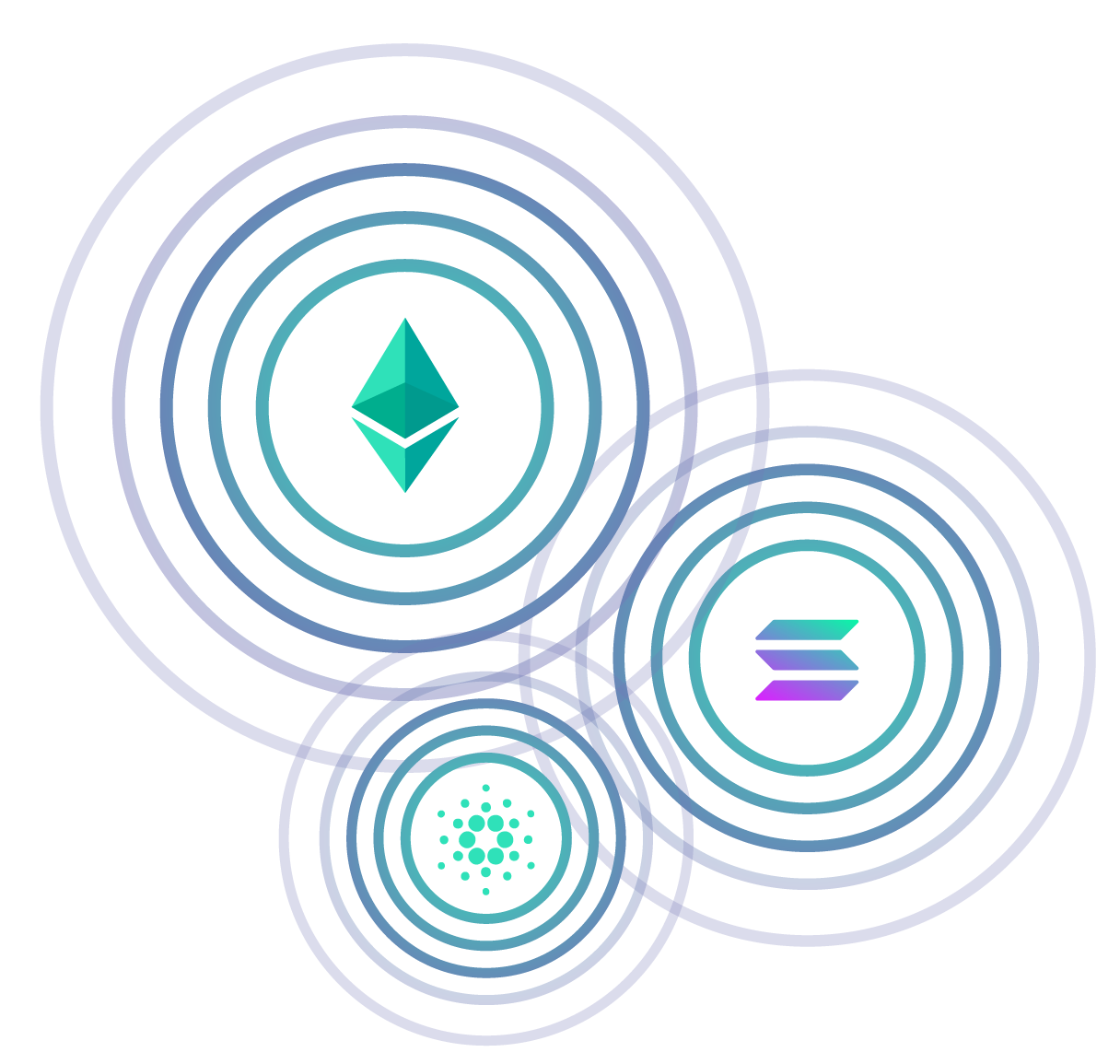



• Minimum Stake: $10 CAD equivalent
• Maximum Stake per Transaction: 1,000 ETH
• Rewards: Up to 2% APY (estimated and not guaranteed)

• $10 CAD equivalent
• Maximum Stake per Transaction: 100,000 SOL
• Rewards: Up to 5.9% APY (estimated and not guaranteed)

• Minimum Stake: $10 CAD equivalent
• Maximum Stake per Transaction: 25,000 ADA
• Rewards: Up to 2.2% APY (estimated and not guaranteed)
Yes, as long as your staked total meets the $10 CAD minimum equivalent in the token you are staking.
Staking rewards will depend on your staked amount, the warm-up period, and the reward rate set by the blockchain protocol. Operational fees, validator performance, and network conditions can also affect the net amount you receive.
No. Staked assets are locked during the warm-up period before rewards begin, and again during the cool-down period after you choose to unstake. During these times, assets cannot be traded or transferred.
Staked assets remain subject to market price fluctuations throughout the staking period. The value of your holdings may rise or fall with market conditions, which affects the amount you receive when unstaked.
No. Rewards may vary with network performance, validator efficiency, market conditions, and activity levels. In some cases, Newton may (in its discretion) pre-fund wallets to reduce warm-up periods, which can change when rewards begin and may affect reward yields. Learn more here.
Yes. Depending on the asset, staked assets may be lost due to validator slashing (penalties for network issues) or technical errors. Please ensure that you review the applicable risks in the applicable token’s Crypto Asset Statement before staking any assets.
The CRA may tax staking rewards in different ways depending on your situation. For clarity, review CRA guidance or consult a tax professional.
Note: Staking rewards displayed on Newton are estimates and are not guaranteed. Actual rewards may vary due to network conditions, validator performance, market fluctuations, and other factors outside Newton’s control. Rewards are distributed based on the performance of the underlying blockchain network and are subject to change over time.Please note that slashing is enabled on some networks, meaning you may lose a portion of your staked assets or rewards if the validator you are assigned to is penalized. Additionally, all timeline periods for warm-up, cool-down, and reward distributions are approximate and may change without prior notice.Newton charges a fee for providing staking services, which is deducted from your rewards. As a registered platform under the Ontario Securities Commission (OSC), Newton complies with Canadian Securities Administrators (CSA) regulations, ensuring transparency and adherence to regulatory standards. By participating in staking through Newton, you acknowledge and accept these terms and associated risks. Carefully review all risks involved before staking your assets